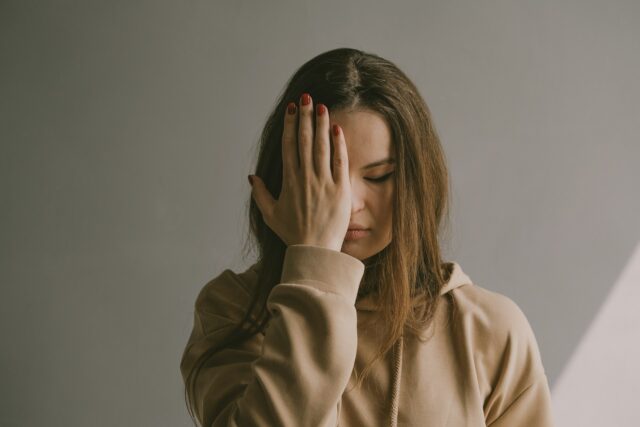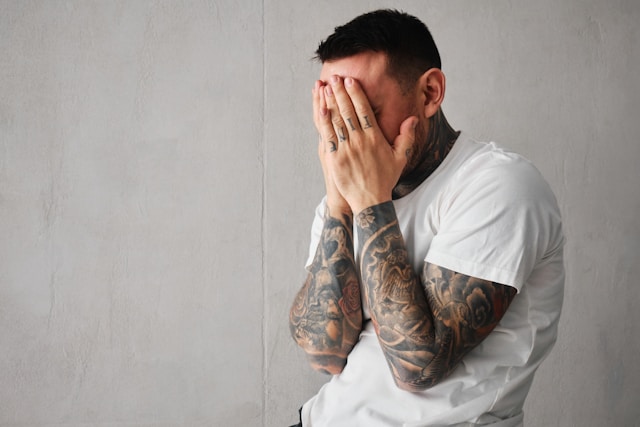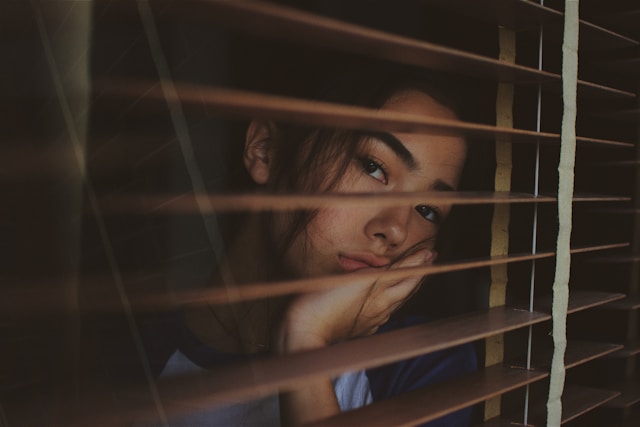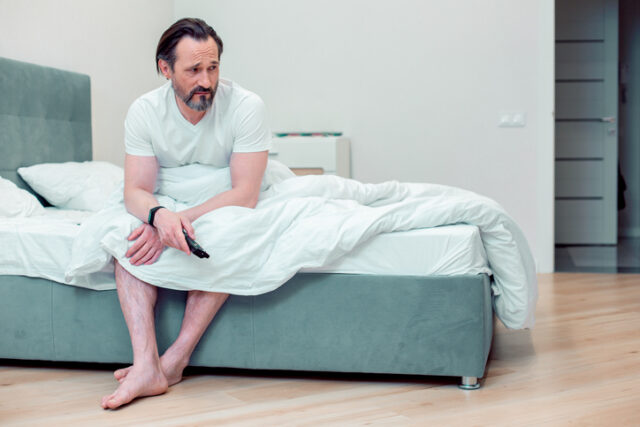When you’re in the depths of depression, even getting out of bed in the morning seems like a mammoth task.

All you want is to feel better, but finding the energy to do the things that can help you get there is a lot easier said than done. But while you may be struggling to be proactive in pulling yourself out — and hey, you might need some outside help from a therapist or even medication, so don’t be shy about seeking it! — there are some things you definitely shouldn’t do unless you want to feel even worse. These things won’t help you, they’ll just hurt you more.
1. Isolating yourself completely

It’s natural to want to withdraw when you’re feeling low, but too much isolation can make depression worse. Avoid cutting off communication with loved ones entirely. Even a brief phone call or text exchange can remind you that you’re not alone and help lift your spirits.
2. Ignoring your physical health

Skipping meals, neglecting hydration, or staying sedentary can intensify depressive symptoms. While it might feel hard to care for your body, small steps like drinking a glass of water or eating something nourishing can make a difference. Physical well-being and mental health are deeply interconnected.
3. Overscheduling yourself

Taking on too many commitments when you’re already overwhelmed can lead to burnout and increase feelings of inadequacy. Instead, prioritise your to-do list and give yourself permission to say no. Focusing on just one or two manageable goals can help you regain a sense of control without adding extra pressure.
4. Overindulging in social media

Scrolling through social media can create a false sense of connection while fuelling negative comparisons and worsening your mood. Avoid spending excessive time online, especially if it leaves you feeling more isolated or inadequate. Replace mindless scrolling with activities that ground you, like journaling or reading.
5. Suppressing your emotions

Pretending everything is fine or avoiding your feelings might seem like the easiest option, but it can lead to emotional build-up. Instead of bottling things up, try expressing your emotions through writing, talking to a trusted friend, or speaking with a therapist. Acknowledging your feelings is the first step toward healing.
6. Turning to alcohol or substances

It can be tempting to use alcohol or other substances as a coping mechanism, but they often worsen depressive symptoms in the long run. These temporary fixes can interfere with your emotional processing and exacerbate feelings of hopelessness. Focus on healthier outlets, like deep breathing or engaging in a calming hobby.
7. Neglecting sleep routines

Depression often disrupts sleep patterns, but ignoring your need for rest can intensify symptoms. Staying up too late or oversleeping can throw off your body’s natural rhythms. Try to maintain a consistent sleep schedule and create a bedtime routine that encourages relaxation.
8. Avoiding professional help

Many people resist seeking therapy or talking to a doctor, believing they can handle it on their own. However, professional support is often vital for navigating a depressive episode. Reaching out for help doesn’t mean you’ve failed—it’s a courageous step toward recovery.
9. Criticising yourself harshly

Negative self-talk can spiral out of control during a depressive episode, reinforcing feelings of worthlessness. Avoid berating yourself for how you feel or what you can’t accomplish right now. Practising self-compassion, even in small ways, can break this cycle and promote a kinder inner dialogue.
10. Comparing your journey to anyone else’s

Everyone’s experience with depression is different, and comparing yourself to other people—whether in real life or online—can deepen feelings of inadequacy. Avoid measuring your progress against someone else’s timeline. Focus instead on your unique path and what small steps feel achievable for you.
11. Skipping medication or treatment plans

Stopping prescribed medication or ignoring treatment recommendations without consulting your healthcare provider can lead to setbacks. Even if you feel like nothing is helping, staying consistent with your plan is crucial. Discuss any concerns with your doctor before making changes to your treatment.
12. Avoiding sunlight or fresh air

Spending all day indoors can worsen feelings of fatigue and sadness. Depression often makes getting outside feel daunting, but even a few minutes in natural light can boost your mood. Open a window, sit by a sunny spot, or step outside to breathe in fresh air whenever possible.
13. Taking on other people’s problems

During a depressive episode, trying to solve other people’s issues can become overwhelming and drain your already limited energy. It’s okay to set boundaries and focus on your own well-being. Remember, taking care of yourself isn’t selfish—it’s necessary for your recovery.
14. Expecting instant improvement

Depression recovery takes time, and putting pressure on yourself to feel better immediately can lead to frustration. Avoid setting unrealistic expectations for your progress. Healing is a journey, and even small improvements are steps in the right direction.
15. Avoiding activities you used to enjoy

When you’re feeling low, it’s tempting to skip hobbies or interests altogether, assuming you won’t enjoy them. While it may take effort, re-engaging with things you once loved can spark moments of relief and joy. Start small—even 10 minutes of an activity can help shift your mood.




